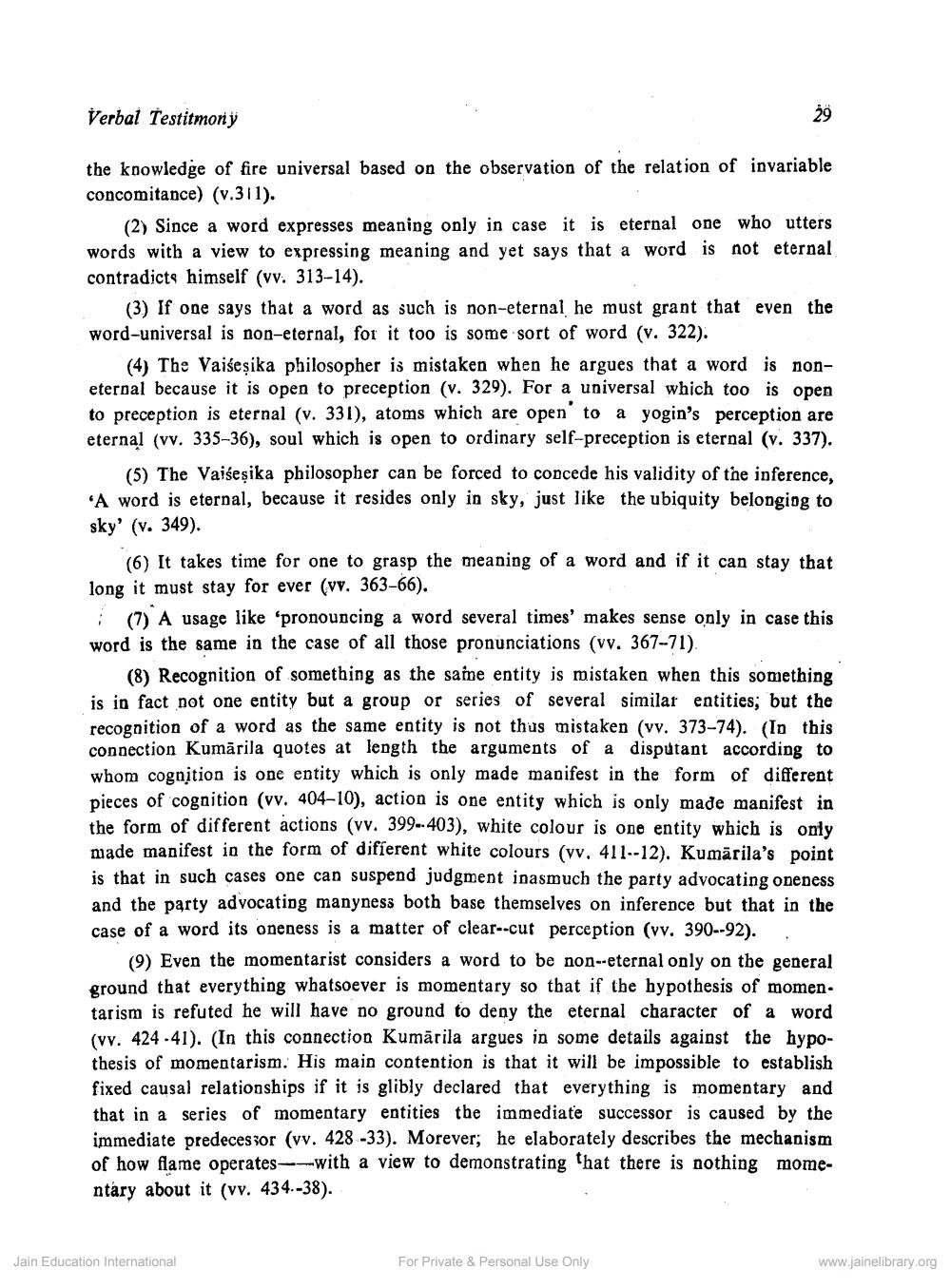________________
Verbal Testitmony
the knowledge of fire universal based on the observation of the relation of invariable concomitance) (v.311).
(2) Since a word expresses meaning only in case it is eternal one who utters words with a view to expressing meaning and yet says that a word is not eternal contradicts himself (vv. 313-14).
(3) If one says that a word as such is non-eternal he must grant that even the word-universal is non-eternal, for it too is some sort of word (v. 322).
(4) The Vaiseșika philosopher is mistaken when he argues that a word is noneternal because it is open to preception (v. 329). For a universal which too is open to preception is eternal (v. 331), atoms which are open to a yogin's perception are eternal (vv. 335-36), soul which is open to ordinary self-preception is eternal (v. 337).
(5) The Vaiseșika philosopher can be forced to concede his validity of the inference, A word is eternal, because it resides only in sky, just like the ubiquity belongiog to sky' (v. 349).
(6) It takes time for one to grasp the meaning of a word and if it can stay that long it must stay for ever (vv. 363-66).
(7) A usage like 'pronouncing a word several times' makes sense only in case this word is the same in the case of all those pronunciations (v. 367-71).
(8) Recognition of something as the saine entity is mistaken when this something is in fact not one entity but a group or series of several similar entities; but the recognition of a word as the same entity is not thus mistaken (vv. 373-74). (In this connection Kumārila quotes at length the arguments of a disputant according to whom cognition is one entity which is only made manifest in the form of different pieces of cognition (vv. 404-10), action is one entity which is only made manifest in the form of different actions (vv. 399-403), white colour is one entity which is only made manifest in the form of different white colours (vv. 411--12). Kumärila's point is that in such cases one can suspend judgment inasmuch the party advocating oneness and the party advocating manyness both base themselves on inference but that in the case of a word its oneness is a matter of clear--cut perception (vv. 390--92).
(9) Even the momentarist considers a word to be non--eternal only on the general ground that everything whatsoever is momentary so that if the hypothesis of momentarism is refuted he will have no ground to deny the eternal character of a word (vv. 424.41). (In this connection Kumārila argues in some details against the hypothesis of momentarism. His main contention is that it will be impossible to establish fixed causal relationships if it is glibly declared that everything is momentary and that in a series of momentary entities the immediate successor is caused by the immediate predecessor (vv. 428-33). Morever; he elaborately describes the mechanism of how flame operates--with a view to demonstrating that there is nothing momentary about it (vv. 434.-38).
Jain Education International
For Private & Personal Use Only
www.jainelibrary.org




